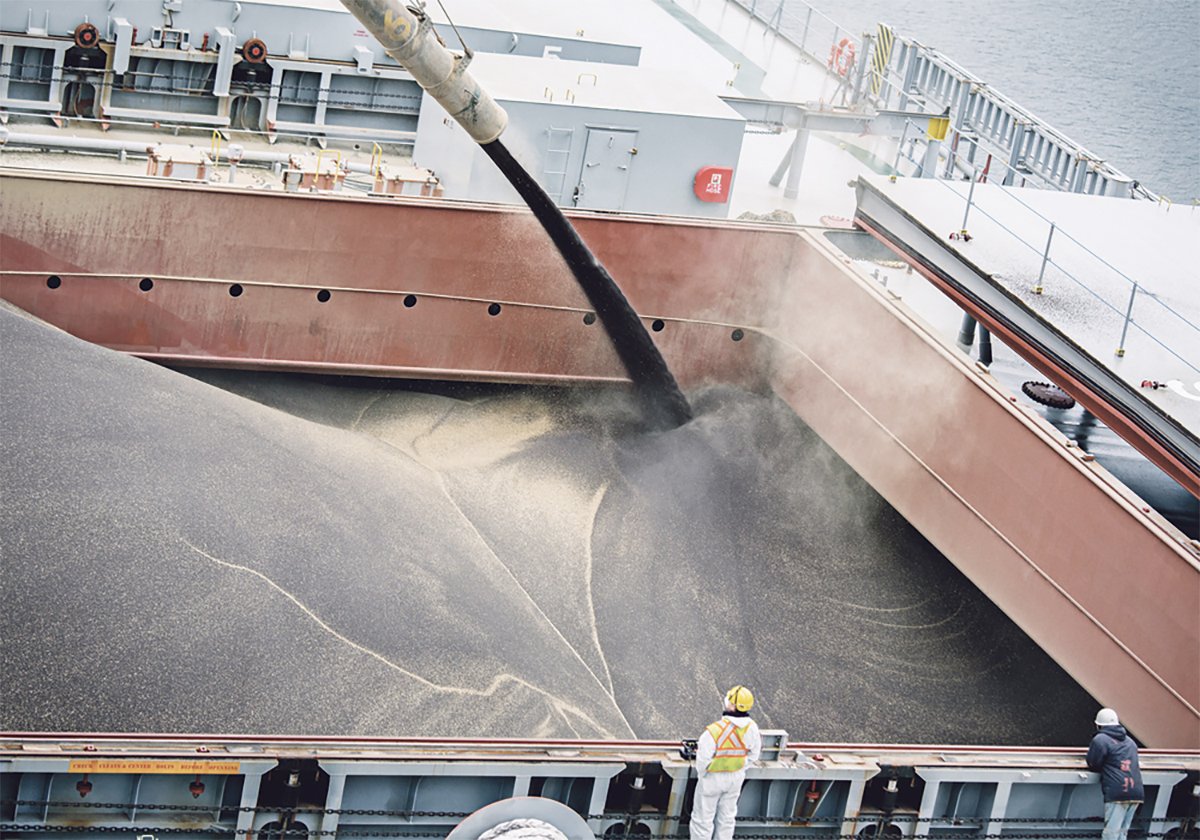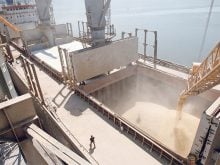If Pascal Lamy gets others to buy into his New Year’s resolution, 2011 will be the year the World Trade Organization’s Doha Round of negotiations finally staggers across the finish line.
The WTO director general insists that after more than nine years of talks, most of them in stalemate, the time is right to seal the deal.
“I call upon all delegations to ensure that your representatives, at whatever level, are mandated to negotiate,” he said in mid-December. “At this stage, it is not enough to have answering machines around the table. We are at the point where we must have negotiators and all negotiators have to be prepared to move out of their comfort zones towards agreement.”
Read Also

Exports off to a slow start after last year’s torrid pace
Canadian grain, oilseed and pulse exports are off to a slow start, but there are some bright spots, according to the Canadian Grain Commission’s most recent weekly export data report.
However, there are clear signs the Canadian government does not consider his call to arms realistic.
“We’re all hopeful something can happen,” agriculture minister Gerry Ritz said in a year-end interview. “In my bones, I don’t feel it. I don’t see any movement from any of the major players, whether you’re talking the EU, the Americans or major developing nations – China, India, Brazil – that anything has really changed. They’re not willing to move beyond the stances that they’ve got.”
Trade minister Peter Van Loan also sounded skeptical.
Since the mandate for the Doha Round was set in 2001, the world has changed and the larger developing countries have become bigger players and must be prepared to make more substantive offers reflecting “higher ambition,” he said.
That position is in line with American insistence that advanced developing countries offer more access to their growing markets.
“We support a conclusion in any event, but I think that’s what’s necessary to break the logjam that now exists,” Van Loan said after meeting with European Union trade commissioner Karel Van Gucht in mid-December.
“To be quite candid, we believe there has to be substantial movement. We have some sympathy for the American position (that the negotiating dynamic has changed since 2001).”
The European trade official said the future of the Doha Round is at risk.
Lamy is correct to try to prod WTO members into serious negotiations because “it is the only thing that can save the Doha Round,” said De Gucht. “It’s not by postponing it for another 12 or 36 months that we will get a solution. If we want an ambitious, fair deal, we will have to engage at the political level very soon.”
That is Lamy’s message, too. He has told negotiators to step up
their intensity and begin to make compromises necessary to create the outline of a deal by March to be completed by summer so ministers can meet to reach the agreements that will lead to details on subsidy and tariff cuts and other changes.
He has ordered the new talks to start Jan. 17 with negotiators authorized to begin the horse trading necessary to get a deal, including on sensitive issues like agriculture.
Lamy insisted this is what world leaders decided they wanted during several high level meetings in 2010.
“They recognized the 2011 window of opportunity to achieve this goal,” he told the trade negotiations committee. “They called for intensified engagement and for negotiations across the board to conclude the end game.”
Ritz, while calling for major developing countries to improve their access offers, indicated Canada is not prepared to back down from its defence of high protective tariffs for import-sensitive supply managed sectors.
“Canada’s position is clear, our stance has not changed,” he said. “We look forward to completion of that body of work but not to sacrifice any particular sector here in Canada.”
But if Ottawa is skeptical about a 2011 WTO deal, it is much more optimistic about completion of bilateral deals that offer new markets for Canadian agricultural exporters.
Legislation to implement free trade deals with countries, including Jordan and Panama, are making their way through Parliament.
And talks with the EU, the crown jewel of Canada’s recent bilateral negotiations, are on track to end in late 2011, according to both sides.














